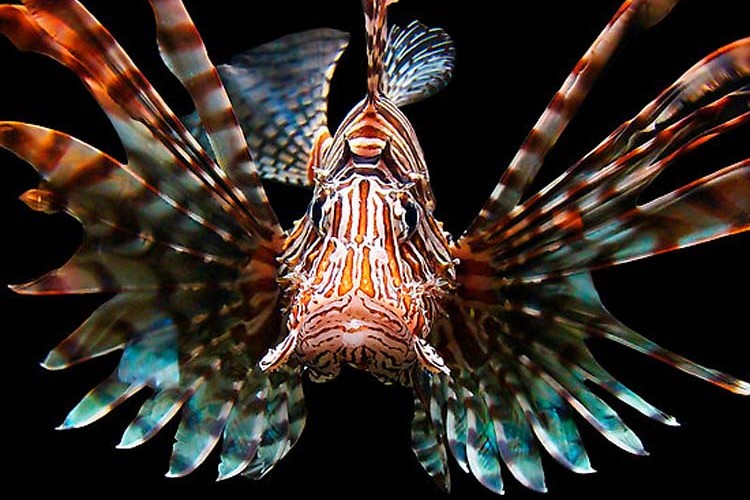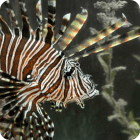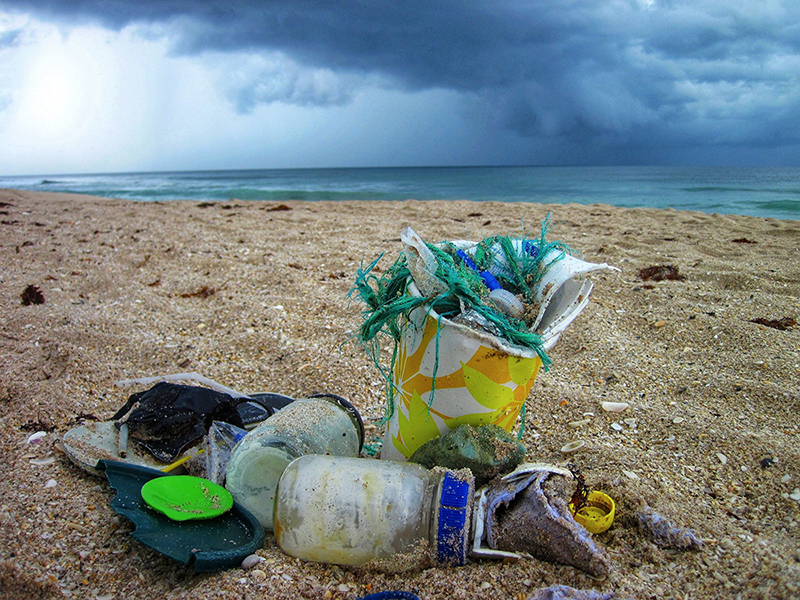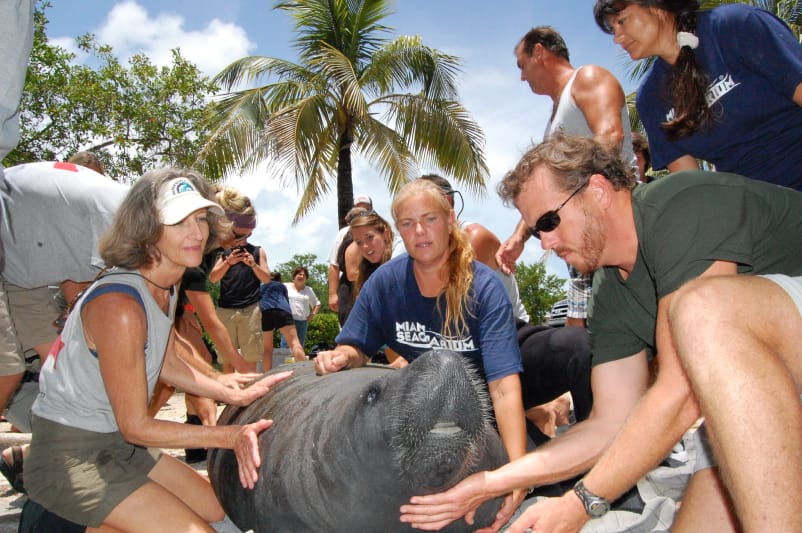
By: Kyle Grammatica
Thanks to University of Florida researchers, we may have a new tool in the fight against invasive lionfish: the Gittings trap. Their research, published in August in the scientific journal PLOS ONE, highlights an inexpensive and simply designed trap that captures lionfish while leaving native fish unaffected. The Gittings trap is named after Steve Gittings, chief scientist for NOAA’s Office of National Marine Sanctuaries and one of the study’s authors. The trap consists of netting attached to a circular frame of metal or PVC tubing and has hinges that allow it to open and close like a clam shell. In the middle of the trap sits the bait: a simple piece of plastic lattice. To the lionfish, the plastic lattice structure resembles their reef habitat, and so they naturally gather around it. Once the lionfish are within the trap, it is pulled up, the hinges close, and you’re left with a net full of nonnatives at the surface. One of the most exciting aspects of the Gittings trap is the lack of impact it has on native fish. During the researchers’ tests at artificial reefs in the Northern Gulf of Mexico, lionfish were 10 times more likely to be attracted to the trap than native fish.
The Gittings trap shows promise, but in its current form, it is still not as effective as spearfishing for lionfish in shallow waters. However, lionfish have been found at depths greater than those spearfishing scuba divers can get to, so the Gittings trap could be used to target these previously inaccessible invasives. More work is required to test the effectiveness of the traps around natural reefs and see if their catch rates can support commercial fishing use.
About Lionfish
Lionfish are native to the Indo-Pacific and Red Sea but have established nonnative populations from North Carolina to Florida, and down to South America. They can be found in almost all marine habitat types and live in waters up to 1,000 feet deep. They were first reported off Florida’s Atlantic Coast in 1985 and have rapidly increased their range and population since then.
Lionfish are predatory reef fish that voraciously prey upon Florida’s native fish, reducing their population. The loss of native fish negatively impacts the overall reef habitat health as each species has an important ecological role. Without native fish fulfilling their roles, problems like unchecked algae growth arise and the reef health suffers. Lionfish also compete for food with native predatory fish like grouper and snapper. They have 18 venomous spines that defend them against predators, although their flesh is not poisonous or venomous. In fact, they’re delicious to eat!
We proudly support the fight against invasive species like lionfish and Burmese pythons. We fund high-impact projects that combat invasives with science and speed. Help us by donating here.











